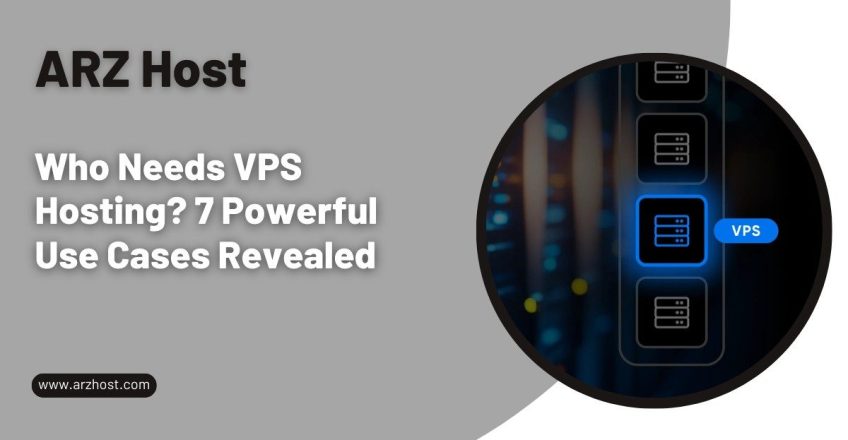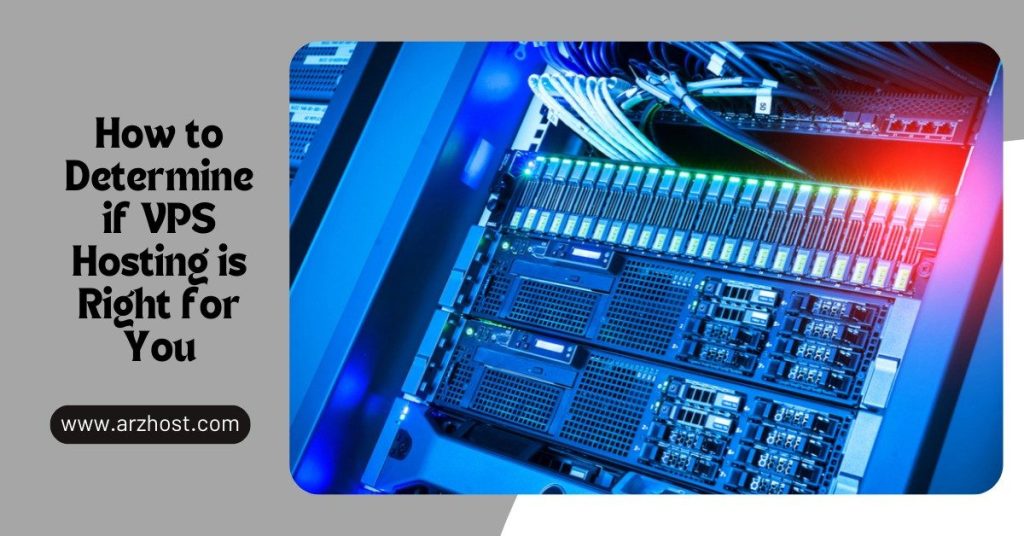
The shared hosting plan you initially selected may start to drag you down as your site attracts more visitors. Shared hosting is similar to renting a room in an apartment building. Everyone shares the same bandwidth, server CPU and storage. If one website on that server experiences a surge in traffic, the rest also become slow.
VPS hosting changes that. Although you’re still in the same data center, you get your own dedicated CPU cores, RAM, and SSD or NVMe storage. You get your virtual machine that runs separately from anyone else’s. You can secure your environment, install web apps you actually need, and can optimize your server settings. For example, a developer running a custom app stack on Apache or Nginx can scale CPU and memory without taking the site offline. That’s the real win with VPS hosting: your uptime, your speed, and your flexibility stay in your hands.
Who Needs VPS Hosting? well Let’s Find out!
VPS Hosting, short for Virtual Private Server hosting, works by splitting a powerful physical server into multiple virtual machines. Each one runs its own operating system and gets dedicated CPU cores, memory, and storage. Think of it like a big apartment building, but you’ve got your own locked unit. Nobody else can access your space or files.
VPS keeps your resources separate, ensuring consistent performance. It’s also way cheaper than renting a full dedicated server rack in a data center. The reason this works is virtualization technology; software like VMware or KVM builds a secure layer that keeps your VPS isolated from the rest. What happens on someone else’s server space never touches yours.
You also get root or admin access. That means you can decide what web applications to run, how to configure the server itself and how to lock it down for security. For instance, you can run Apache or Nginx exactly the way your application needs it and run MySQL and Redis without having to worry about shared hosting limits. For e-commerce, SaaS sites or any site that requires predictable availability and fast load times, that’s gold. VPS hosting is where performance, flexibility, and security meet without the huge price tag of dedicated hosting.
Power Your Website with ARZ Host!
Start Your Online Journey with ARZ Host! Get Fast, Secure, and Scalable Hosting!.
Click HereWebsites and online projects can grow significantly, and the basic hosting you initially choose may not be sufficient to keep up. When your traffic increases or your server requirements grow, you need more power and flexibility.VPS hosting is the middle ground that handles that growth without forcing you into a full dedicated server. Here’s how different users make the most of it.
When big sites are used on shared hosting, they can drain the available resources quickly, because the CPU time, memory and bandwidth are shared with all the other web pages that are hosted on the same server. VPS hosting gives your site dedicated resources, so it loads quickly and is stable even during periods of high traffic. You will use your own dedicated resources (which are enough for your sites)
As a business grows, its website demands more processing power, storage, and flexibility. Shared hosting simply won’t keep pace. VPS will allow you to scale effortlessly, expand server resources, and perform configuration changes without any downtime.
When a site handles payment data, personal information, or sensitive records, isolation is necessary. A VPS is hosted in a virtual environment within a Tier Data Center, which prevents exposure to other users. They will not have any impact on the security due to server configurations. Therefore, it is much simpler to enforce security policies with VPP.
Some projects are not just hosting static pages. They are hosting advanced web applications, database servers, or important software stacks. VPS hosting with root access allows you to install any web server software or programming language you like, including Apache, NginX, MySQL, or Node.js, and configure it as you like.
When orders are coming in on online stores, they simply cannot afford lag or downtime. VPS hosting minimizes lag during a surge in orders because the CPU and bandwidth are not consumed by other sites, ensuring checkout pages remain responsive. This keeps the buying process smooth and builds customer trust.
Some websites, such as news websites, SaaS applications or business service sites, must be available 24 hours a day, 7 days a week. VPS hosting usually has good uptime SLAs and steady performance, they will be up all the time.
Each of these use cases provides examples of why VPS Hosting Works So Well for those looking for superior speed, operational control, and security that shared hosting can provide, without the higher cost of a full dedicated server. It’s a hosting setup that adapts to real-world demands.
When selecting VPS hosting, the benefits are obvious once you know what to look for. They line up with exactly what a growing site or business needs. You’re getting more say in how things run.

A guide that will help you figure out if VPS hosting is the right fit for your site or project is as follows.
To do so, you should first see How Your Site is Currently Performing. Are people complaining about slow load times? Spikes in traffic are causing downtime or odd errors? Then you can identify traffic spikes, page speed, and uptime problems, using analytics tools like the widely used Google Analytics, or even server monitoring software. Choking during peak hours is a major red flag for shared hosting.
List the stuff that’s holding you back. Maybe you can’t change the PHP settings. Maybe you’re constantly hitting CPU or bandwidth limits. Or maybe the security setup feels flimsy because you’re on the same server environment as dozens of other websites. Knowing exactly what’s frustrating you makes it easier to see how VPS hosting can resolve the issue.
Take a look at what kind of data your site stores or processes. If you work with personal data, credit card or important business documents, security becomes a must-have. VPS reduces exposure and enables you to set up firewalls, intrusion detection and automated backups without fear of any account on the same physical machine.
Estimate the amount of CPU, RAM, and storage you’ll need and then compare pricing between VPS providers.It is typically priced higher than shared hosting but lower than renting a dedicated server. The benefits to you include increased performance, security, and control —all things that can translate into user retention and reduced downtime.
Determine the amount of CPU, RAM, and storage you’ll need and then compare pricing across VPS providers. It is typically priced higher than shared hosting but lower than renting a dedicated server. The benefits to you include increased performance, security, and control —all things that can translate into user retention and reduced downtime.
Monitor your website’s traffic and the complexity of your site. If you are running web applications that require custom configurations, or your traffic constantly hammers the limits of shared hosting, you want to be proactive about migrating before you start having a litany of problems. Planning ahead means you won’t be scrambling during a critical traffic surge.
This process keeps the VPS hosting decisions grounded in real numbers and real needs based on your plans for growth. This is about choosing the right server environment so you can ensure that your site is fast, secure and ready to scale up to the next level.
Secure Your Dedicated Server Today
Experience Power with Dedicated Servers – Free Setup with the server.
Click HereVPS Hosting is a great choice for websites and businesses, which have outgrown shared hosting and require more control.
If your websites are attracting more visitors, have custom server requirements, or your security needs have increased, a virtual private server will provide you with the necessary breathing room to manage it all in a steady manner. An online store gearing up for a big holiday rush, or a SaaS platform that can’t afford downtime, will get the consistent speed and uptime that shared plans can’t always handle.
Keep track of your hosting as your site evolves. What works today may break when you add features or your traffic doubles. Monitor load times, server response times and test the responsiveness of your host for potential spikes. Don’t use guesswork, use real monitoring tools. If your system is slow or if you can find security holes, the time has come to migrate.
With the right provider, and with a robust virtualization platform like KVM or OpenVZ, you have a stable isolated environment to run WordPress, Magento, custom web applications or whatever your business needs. You don’t pay for extras; you make sure your site can expand without breaking or becoming compromised.
Want More Customers? Make Your Website Fast, Reliable, & Secure with ARZ Host.
With VPS hosting, you have your own space on a physical server. That means that the CPU, RAM, and storage that’s dedicated to you, is not shared with other sites. With shared hosting all that is divided between a couple of dozen or hundreds of sites, and if one of those sites starts to hog resources your site can stall. On VPS you can set the custom settings for the server, your apps/CMS plugins can be set up, you can run custom PHP codes, Node.js, etc. Shared hosting will always lock everything and does not allow for that. VPS costs definitely more, but you get speed, more control and a safe hosting environment.
Yes in most cases. Usually, most web hosting companies offer procedures to migrate files, databases, and email accounts to the VPS without taking your site offline. Managed VPS hosting makes things easier as the managed VPS takes care of the migration, DNS updates, and testing. Make sure you talk to your provider about this ahead of time so you know what to do and when to do it. A little planning goes a long way to keep visitors from seeing an error page.
It’s a big step up from shared hosting. In a VPS, your account resides in its own virtual environment so that another user’s hacked WordPress install cannot cross-contaminate your environment. You can add your own firewall rules, run malware scans, and set up automatic backups on your schedule. A dedicated server will give you the most control over security, but a VPS is that sweet middle ground between cost and protection.
If it’s an unmanaged VPS, yes. You’ll be setting up the OS, installing server software, patching updates, and fixing issues when they arise. Managed VPS is a different story. The hosting company handles most of the heavy lifting, so you can just work on your site or web app. If you’ve never used a Linux command line and don’t feel like learning, consider managed hosting.
Better than shared hosting. Because your CPU cores, RAM, and disk space are reserved for you, sudden bursts of traffic won’t slow your site as much. In shared hosting, if your neighbors experience a spike, your site can also lag. On a VPS, your allocated resources stay yours, so when that blog post goes viral or your e-commerce site has a sale, you’ve got more stability.
Sites with regular or increasing traffic, online stores on platforms like Magento or WooCommerce, businesses storing customer information, SaaS apps, even development environments. If you are interested in a hosting plan that can scale, remain fast, and provide you with control over the configuration, the VPS is a great choice before investing in the cost of a dedicated server.
Read More: